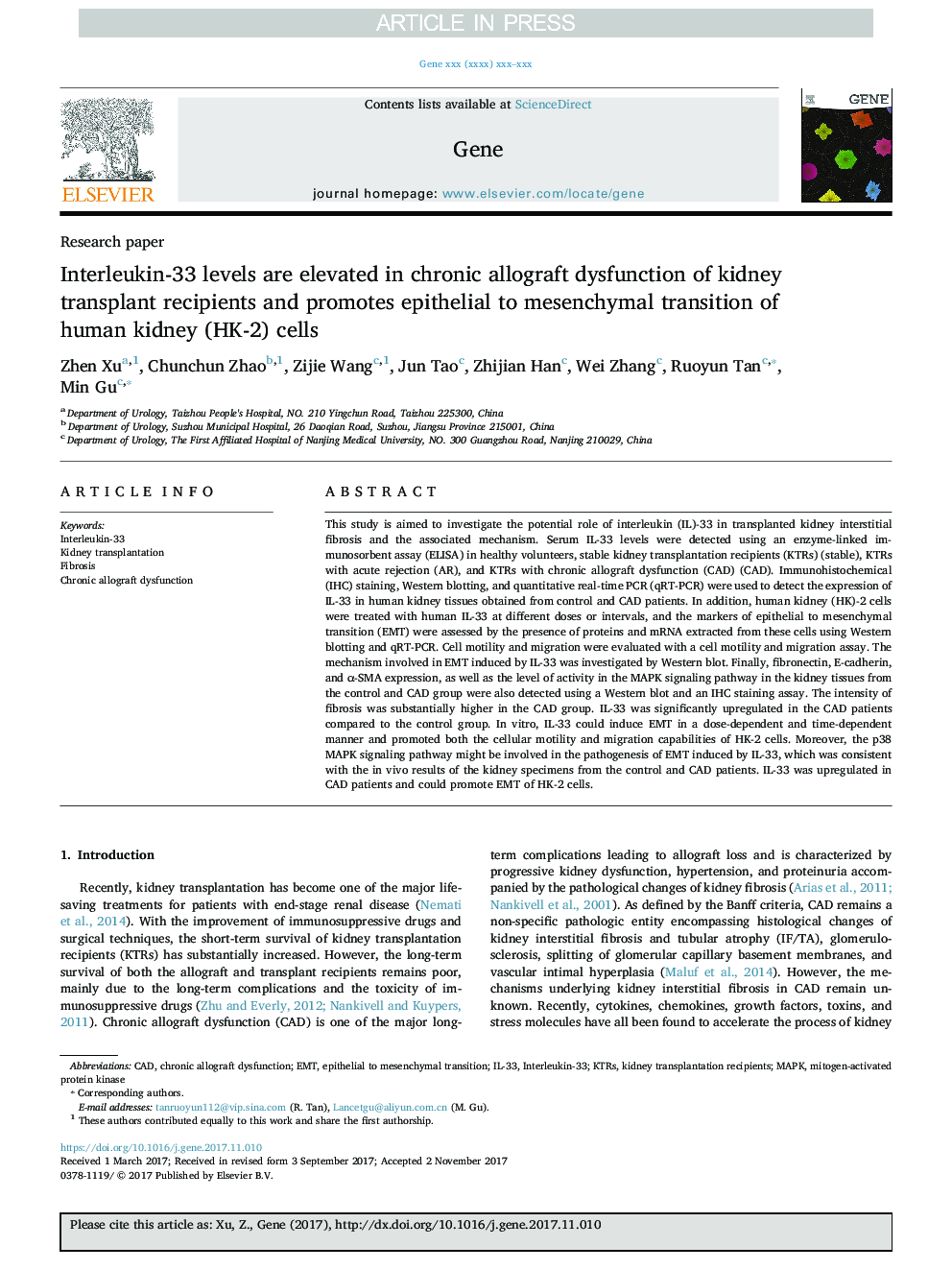| Article ID | Journal | Published Year | Pages | File Type |
|---|---|---|---|---|
| 8645761 | Gene | 2018 | 9 Pages |
Abstract
This study is aimed to investigate the potential role of interleukin (IL)-33 in transplanted kidney interstitial fibrosis and the associated mechanism. Serum IL-33 levels were detected using an enzyme-linked immunosorbent assay (ELISA) in healthy volunteers, stable kidney transplantation recipients (KTRs) (stable), KTRs with acute rejection (AR), and KTRs with chronic allograft dysfunction (CAD) (CAD). Immunohistochemical (IHC) staining, Western blotting, and quantitative real-time PCR (qRT-PCR) were used to detect the expression of IL-33 in human kidney tissues obtained from control and CAD patients. In addition, human kidney (HK)-2 cells were treated with human IL-33 at different doses or intervals, and the markers of epithelial to mesenchymal transition (EMT) were assessed by the presence of proteins and mRNA extracted from these cells using Western blotting and qRT-PCR. Cell motility and migration were evaluated with a cell motility and migration assay. The mechanism involved in EMT induced by IL-33 was investigated by Western blot. Finally, fibronectin, E-cadherin, and α-SMA expression, as well as the level of activity in the MAPK signaling pathway in the kidney tissues from the control and CAD group were also detected using a Western blot and an IHC staining assay. The intensity of fibrosis was substantially higher in the CAD group. IL-33 was significantly upregulated in the CAD patients compared to the control group. In vitro, IL-33 could induce EMT in a dose-dependent and time-dependent manner and promoted both the cellular motility and migration capabilities of HK-2 cells. Moreover, the p38 MAPK signaling pathway might be involved in the pathogenesis of EMT induced by IL-33, which was consistent with the in vivo results of the kidney specimens from the control and CAD patients. IL-33 was upregulated in CAD patients and could promote EMT of HK-2 cells.
Keywords
Related Topics
Life Sciences
Biochemistry, Genetics and Molecular Biology
Genetics
Authors
Zhen Xu, Chunchun Zhao, Zijie Wang, Jun Tao, Zhijian Han, Wei Zhang, Ruoyun Tan, Min Gu,
